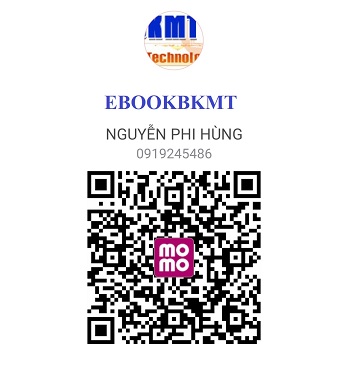EBOOK - Process Modeling Simulation and Control for Chemical Engineers (William L. Luyben)
EBOOK - Điều khiển và laapk quy trình mô phỏng cho kỹ thuật hóa học - Tác giả: William L. Luyben (749 Trang).
The first edition of this book appeared over fifteen years ago. It was the first chemical engineering textbook to combine modeling, simulation, and control. It also was the first chemical engineering book to present sampled-data control.
This choice of subjects proved to be popular with both students and teachers and of considerable practical utility.
During the ten-year period following publication, I resisted suggestions from the publisher to produce a second edition because I felt there were really very few useful new developments in the field. The control hardware had changed drastically, but the basic concepts and strategies of process control had under-gone little change. Most of the new books that have appeared during the last fifteen years are very similar in their scope and content to the first edition. Basic classical control is still the major subject.
However, in the last five years, a number of new and useful techniques have been developed. This is particularly true in the area of multivariable control. Therefore I feel it is time for a second edition.
In the area of process control, new methods of analysis and synthesis of control systems have been developed and need to be added to the process control engineer’s bag of practical methods. The driving force for much of this develop-ment was the drastic increase in energy costs in the 1970s. This led to major redesigns of many new and old processes, using energy integration and more
complex processing schemes. The resulting plants are more interconnected. This increases control loop interactions and expands the dimension of control prob-lems. There are many important processes in which three, four, or even more control loops interact.
As a result, there has been a lot of research activity in multivariable control, both in academia and in industry. Some practical, useful tools have been devel-oped to design control systems for these multivariable processes. The second edition includes a fairly comprehensive discussion of what I feel are the useful techniques for controlling multivariable processes.
LINK DOWNLOAD
EBOOK - Điều khiển và laapk quy trình mô phỏng cho kỹ thuật hóa học - Tác giả: William L. Luyben (749 Trang).
The first edition of this book appeared over fifteen years ago. It was the first chemical engineering textbook to combine modeling, simulation, and control. It also was the first chemical engineering book to present sampled-data control.
This choice of subjects proved to be popular with both students and teachers and of considerable practical utility.
During the ten-year period following publication, I resisted suggestions from the publisher to produce a second edition because I felt there were really very few useful new developments in the field. The control hardware had changed drastically, but the basic concepts and strategies of process control had under-gone little change. Most of the new books that have appeared during the last fifteen years are very similar in their scope and content to the first edition. Basic classical control is still the major subject.
However, in the last five years, a number of new and useful techniques have been developed. This is particularly true in the area of multivariable control. Therefore I feel it is time for a second edition.
In the area of process control, new methods of analysis and synthesis of control systems have been developed and need to be added to the process control engineer’s bag of practical methods. The driving force for much of this develop-ment was the drastic increase in energy costs in the 1970s. This led to major redesigns of many new and old processes, using energy integration and more
complex processing schemes. The resulting plants are more interconnected. This increases control loop interactions and expands the dimension of control prob-lems. There are many important processes in which three, four, or even more control loops interact.
As a result, there has been a lot of research activity in multivariable control, both in academia and in industry. Some practical, useful tools have been devel-oped to design control systems for these multivariable processes. The second edition includes a fairly comprehensive discussion of what I feel are the useful techniques for controlling multivariable processes.
LINK DOWNLOAD
%20(1).png)

.png)

%20(1)%20(1).png)







%20(1).png)



.png)




Không có nhận xét nào: